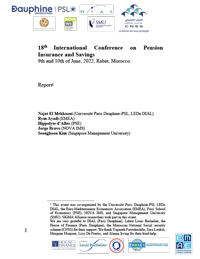Cairo University, 6-7 December 2017, Cairo
EMEA-EMNES Call for Papers
In the aftermath of the 2011 Arab uprisings in the southern and eastern Mediterranean, the region has reached a turning point in its history, presenting as many opportunities as challenges. The Arab world embarked on a transition process of varying magnitudes, whose outcome will be determined by the interaction between a number of economic, political, socio-cultural and geopolitical factors calling both on governments and external actors to design and implement new and specific strategies able to cope with the new realities unfolding in the region.
External actors – notably the EU, which has a role to play as the key economic partner of the region – are expected to rethink their policies towards the region as past political choices proved to be suboptimal to steer the region into a sustainable future.
Most of the research produced on the south-Mediterranean countries before the 2011 uprising failed to reveal the growing socio-economic tensions, hampered by inefficiency and low productivity, inadequate institutional capacity, market fragmentation and lack of integration, below-potential foreign direct investments and weak contribution of small and medium enterprises. This situation led to persistently high levels of unemployment, especially among the youth including most notably the educated ones, combined with increasing inequality, which turned to become the seeds of revolts and revolutions.
The EMEA-EMNES call for papers is targeted to academic researchers, economists and policy experts to present their research and discuss innovative ideas to enhance the policy debate about the fundamentals of an inclusive and sustainable development and growth models that create employment and enhance social inclusion, especially among the youth.
We welcome theoretical and empirical economic and policy contributions on this topic and other related topics of interest in economics and policy.
Topics of interest include, but are not limited to, the following:
- The political economy of institutions, dynamics of institutional reforms, and the role of the state in economic governance, employment creation and inclusive economic development. Papers that combine quantitative and qualitative analysis, including those that employ formal game theoretic models as part of “analytic narratives”, are particularly welcome under this topic;
- Private sector development, micro, small and medium enterprises, with a focus on entrepreneurship, social and cooperative business, employment, informality and emerging global value chains;
- Human capital development through education, skill mismatch, return on education, employment for youth and women;
- Economics of migration, links with labour markets;
- Economies in transition, inter-linkages between economic, social and political factors;
- Macroeconomic policies, socio-economic prosperity and employment creation;
- Financial development and inclusive growth;
- Regional integration, economic liberalization policies and employment and Euro-Mediterranean partnership;
- Lahcen Achy, International Monetary Fund.
- Cinzia Alcidi, Centre for European Policy Studies.
- Noah Alshyab, Yarmouk University.
- Patricia Augier, Institut de la Méditerranée & FEMISE.
- Rym Ayadi, HEC Montreal.
- Ahmed Badawi, Frei University of Berlin.
- Barbara Casu, Cass Business School, City University London.
- Jacques Charmes, Institute for Research for Development.
- Samiha Fawzi, Cairo University.
- Mohamed Goaid, Qatar University and IHEC Tunis.
- Cilja Harders, Frei University of Berlin.
- Laila El Khawaga, University of Cairo.
- Mohamed Lahouel, Government of Dubai.
- Basma Majerbi, University of Victoria.
- Najet El Makaoui, University Paris Dauphine.
- Daniel Mirza, University of Tours.
- Rim Mouelhi, ISCAE, Manouba University of Tunis.
- Sami Ben Naceur, International Monetary Fund.
- Raul Ramos, University of Barcelona.
- Subidey Togan, Bilkent University.
- Jamel Trabelsi, IHEC and University of Strasbourg.
- Chahir Zaki, University of Cairo.
- Habib Zitouna, ITCEQ.
The best paper drawn from the papers selected in this call and presented at the EMNES Second Annual Conference will be awarded the EMEA-EMNES Best Paper Award at the Award Ceremony.
The Euro-Mediterranean Network for Economic Studies – EMNES: is a network of partners and associates research institutions and think tanks working on the Euro-Mediterranean region set up in 2015 and co-funded by the European Commission. EMNES aims to provide a renewed vision for socio-economic development in the Mediterranean region, mainly focusing on employment creation, social inclusion, and sustainable development. www.emnes.org
The Euro-Mediterranean Economists Association – EMEA: Founded in Barcelona in 2012, EMEA is an independent forum that provides forward-looking thinking and political and socio-economic integrated analyses on the Euro-Mediterranean region in an emerging multipolar world. http://www.euromed-economists.org/
Faculty of Economics and Political Science, Cairo University: Since its establishment in 1960, FEPS seeks to graduate high-level specialists in its fields of study making certain that its graduates will have the ability to compete, nationally, regionally and globally, and will be able to promote the development process of their communities. http://feps.cu.edu.eg/
Cairo is a vibrant city characterized by a rich cultural heritage, built on the country’s complex history. Several Pharaonic, Ottoman, Coptic, Islamic attractions make this city one of the richest in the region. In December, days are commonly warm, and nights are slightly cold. Cairo University, where the conference will take place, is the oldest and largest civil university in the Arab region.



